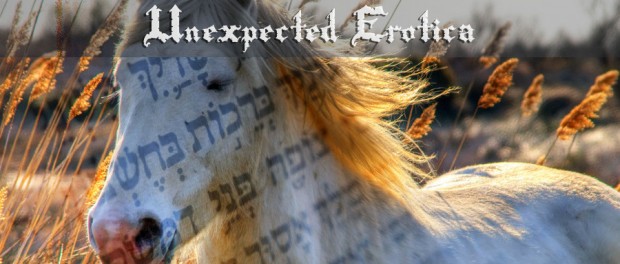Mare – Song of Songs 1:9

Song of Songs 1:9
- KJV: I have compared thee, O my love, / To a company of horses in Pharaoh’s chariots.
- NIV: I liken you, my darling, to a mare / among Pharaoh’s chariot horses.
- NASB: To me, my darling, you are like / My mare among the chariots of Pharaoh.
Reading this verse in context holds no better imagery than on its own. After saying she reminds him of a mare, the wordsmith begins describing her facial features. I can’t help but think of the cheesy old joke: “A horse walks into a bar, and the bartender asks, ‘Why the long face?'”
Witty drink servers aside, there is no cause to ever think calling a woman “horse face” will ever be received in a positive light. Half the world of distance and thousands of years still doesn’t make that right.
So what gives? Maybe it’s bad translation. That happens sometimes. But in this case, the word for “mare” actually means “mare”.
Maybe it’s complimentary, though. Horses are beautiful in their own way, and Egyptian horses were known for being the best, and Pharaoh’s would be the best of the best. These facts are true, and this is the most common interpretation. But we must admit: it’s still shaky as an attempt at flattery. It certainly doesn’t hold the timeless power of some of his other lyrical charms.
With war chariots, you want the power, energy, stamina, and speed that you cannot get from a gelding or a mare.
Yet the local readers would have been aware of a well-known fun fact that we miss. And this fact puts a whole different spin on it.
Look at the context: she’s a mare among the chariots. We immediately draw a mental picture: a proud, sleek mare tied to a chariot, drawing a pair of warriors. But that never happened. Never. Mares never pulled Egyptian chariots. Instead, stallions were used, and there were two of them. Any horse fan can understand the reasoning here. With war chariots, you want the power, energy, stamina, and speed that you cannot get from a gelding or a mare.
You want the raw intensity you only get from a stallion. And two for one means a lot of horsepower.
Yet despite the common knowledge of dual males used in Egypt’s famous army, the man insists she’s a singular female.
What he doesn’t say, though, is that she’s strapped in. Carr states, “the preposition linked with chariots is better translated ‘among’ rather than as a possessive.” Note the NIV and NASB get it right. Suddenly, this passage is slick with erotic suggestion.
He’s saying she’s a single mare, the only mare, among Pharaoh’s many chariots, each of which is tied to two mighty, aggressive, virile stallions. Kinlaw calls this “the ultimate compliment to her sexual attractiveness. That he [the beloved] relishes this thought is clear.” The man loves knowing his woman is desirable to others, a feeling to which I can relate.
Far from calling her a horse face or even a fine specimen, he’s proudly claims her raw sex appeal entices others. If anything, he’s saying she’s so sexy, she could have anyone she chooses (like a mare among the stallions). And she chose him.
In other words, he’s lucky, and she’s hot.
s
Originally posted 2016-04-25 08:00:51.


Leave a Reply